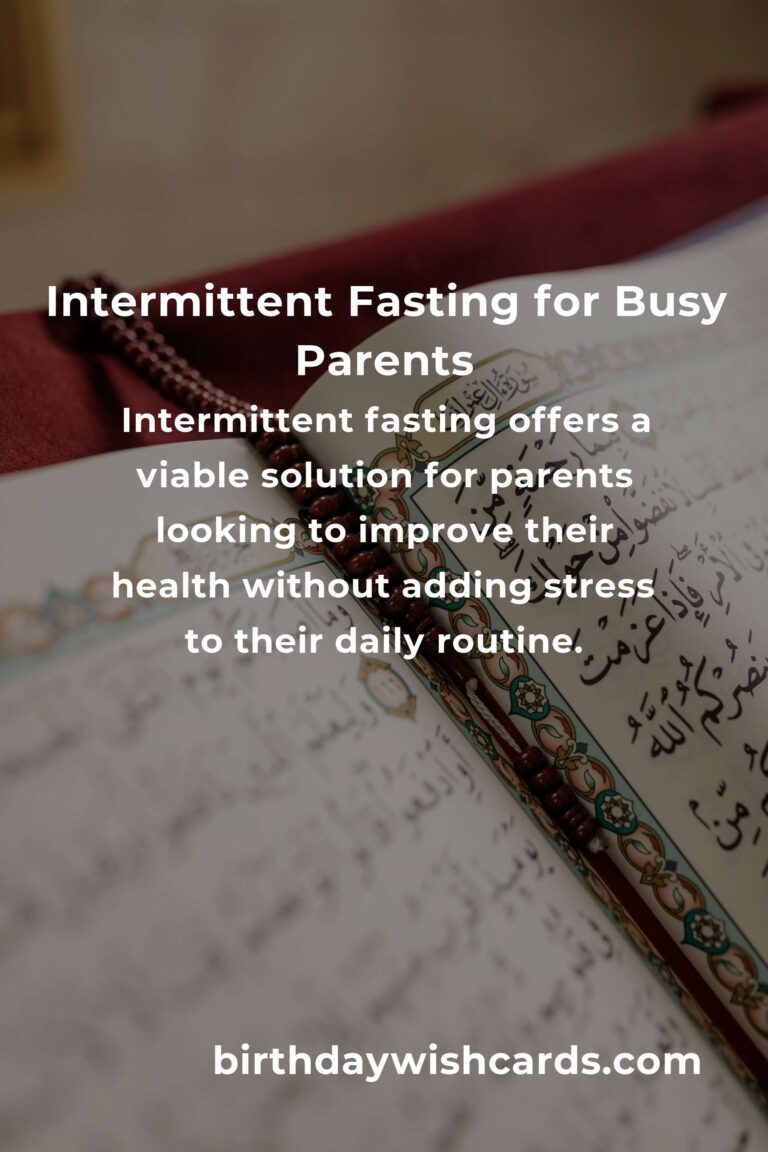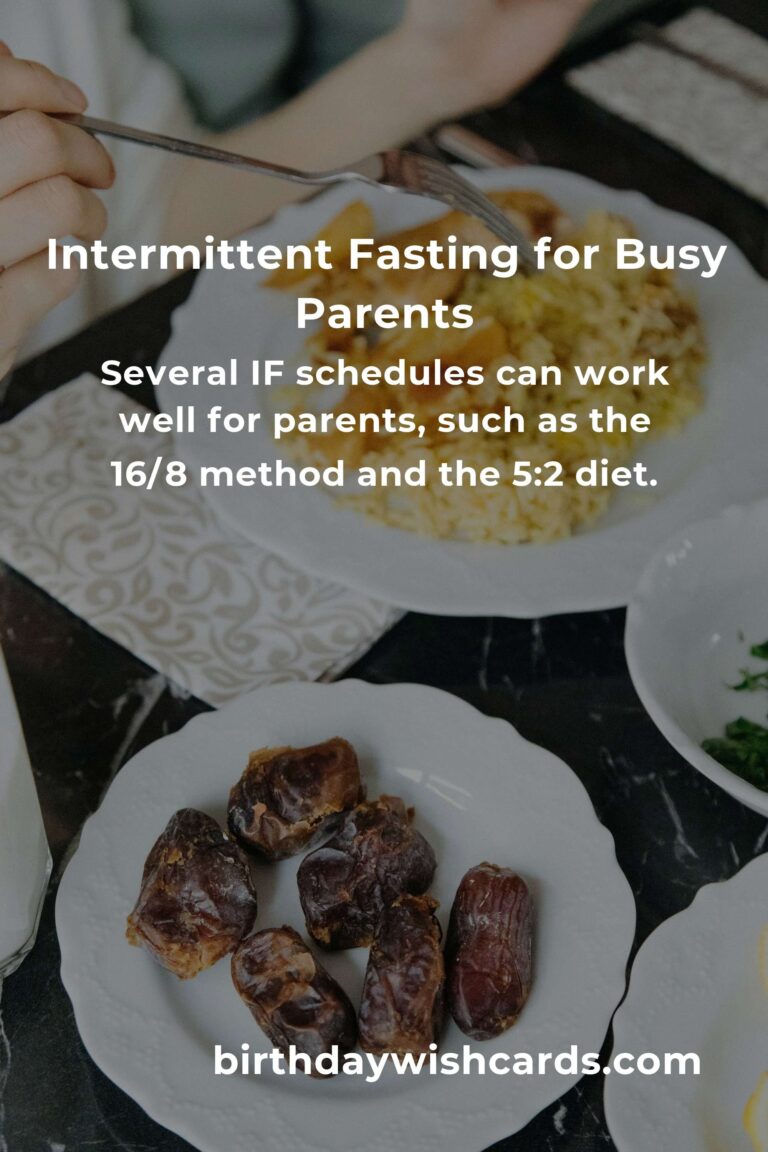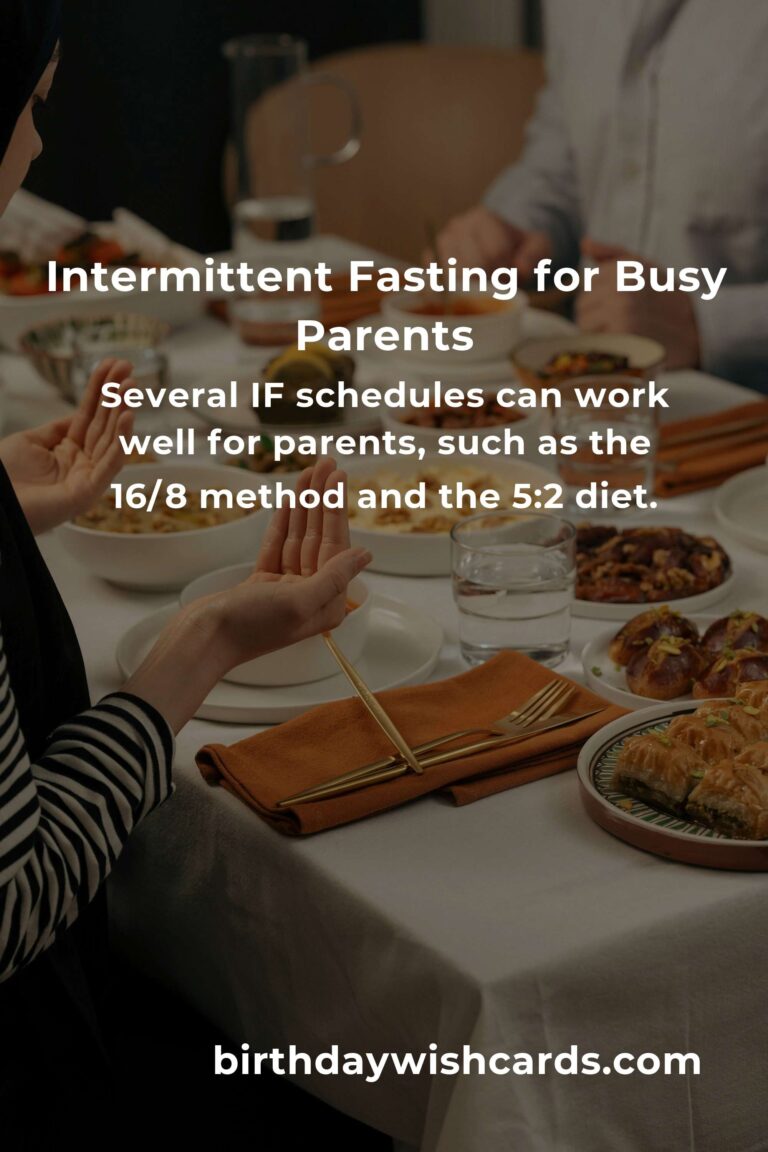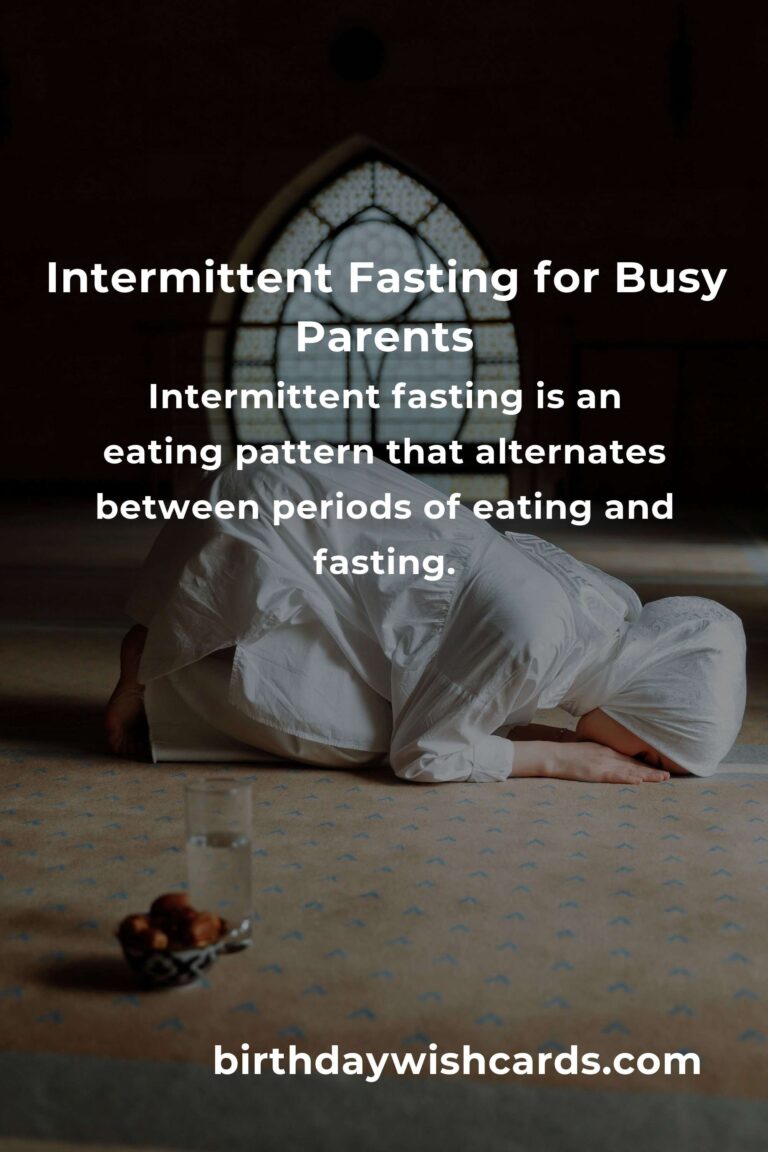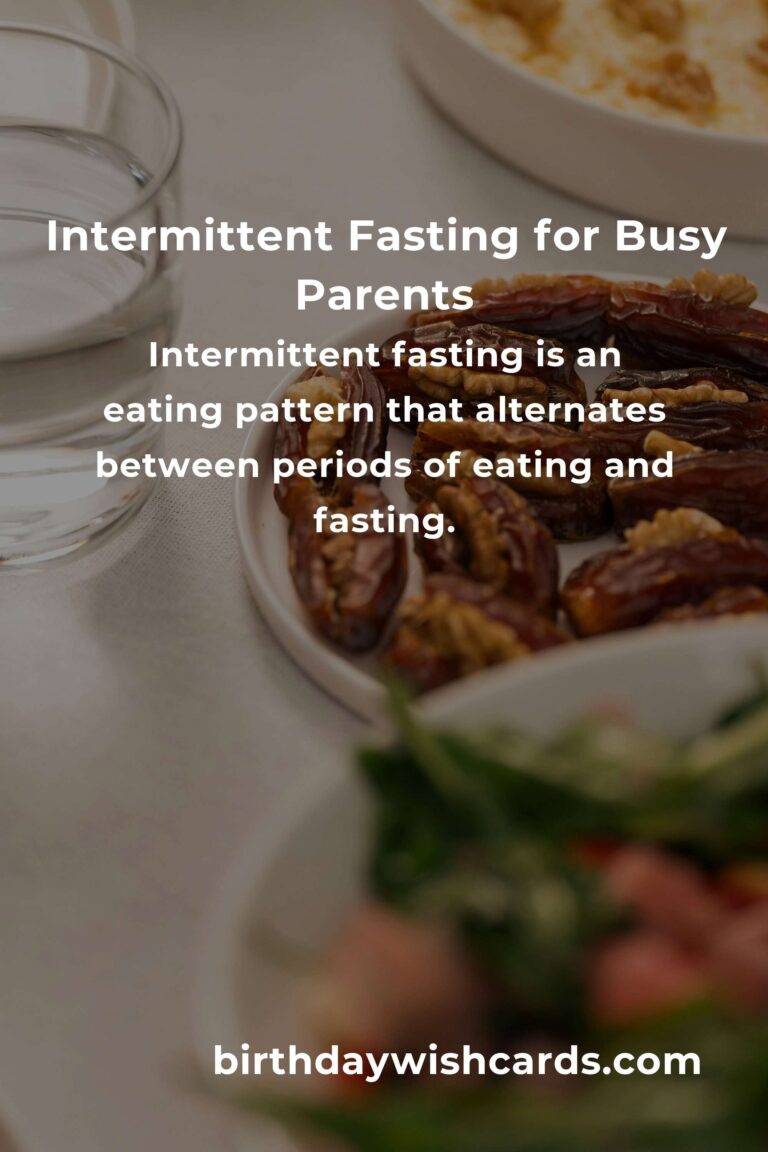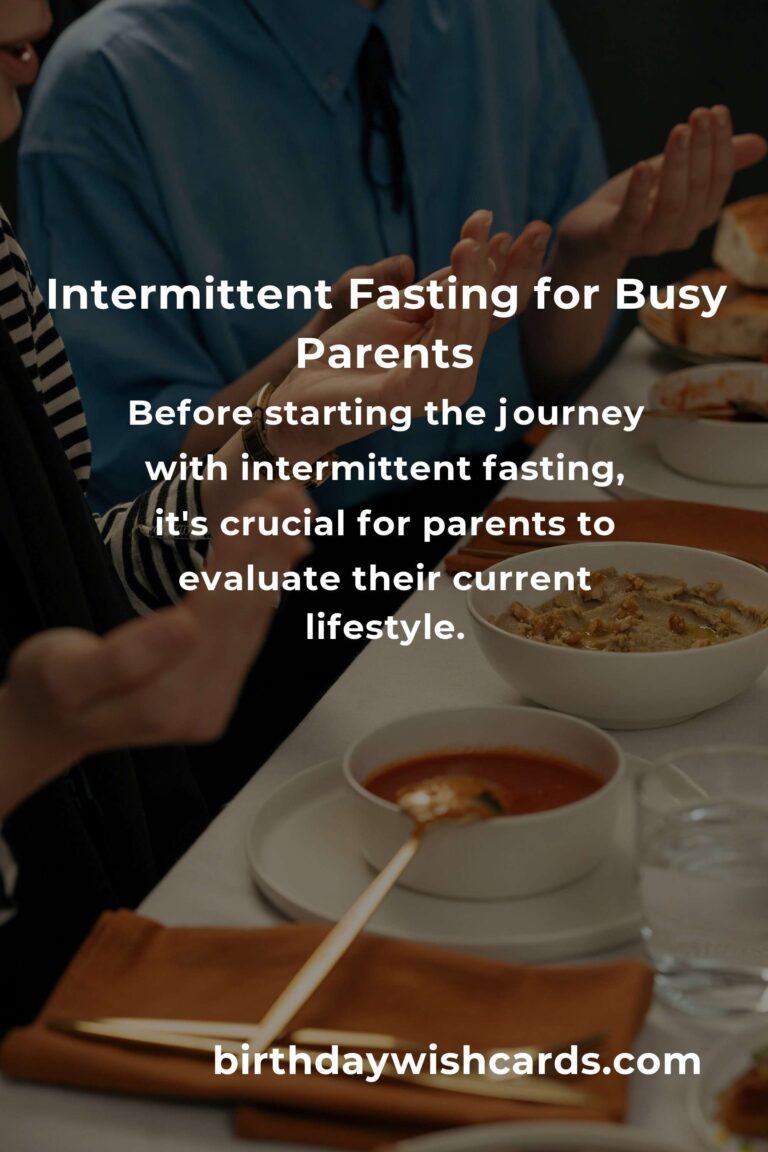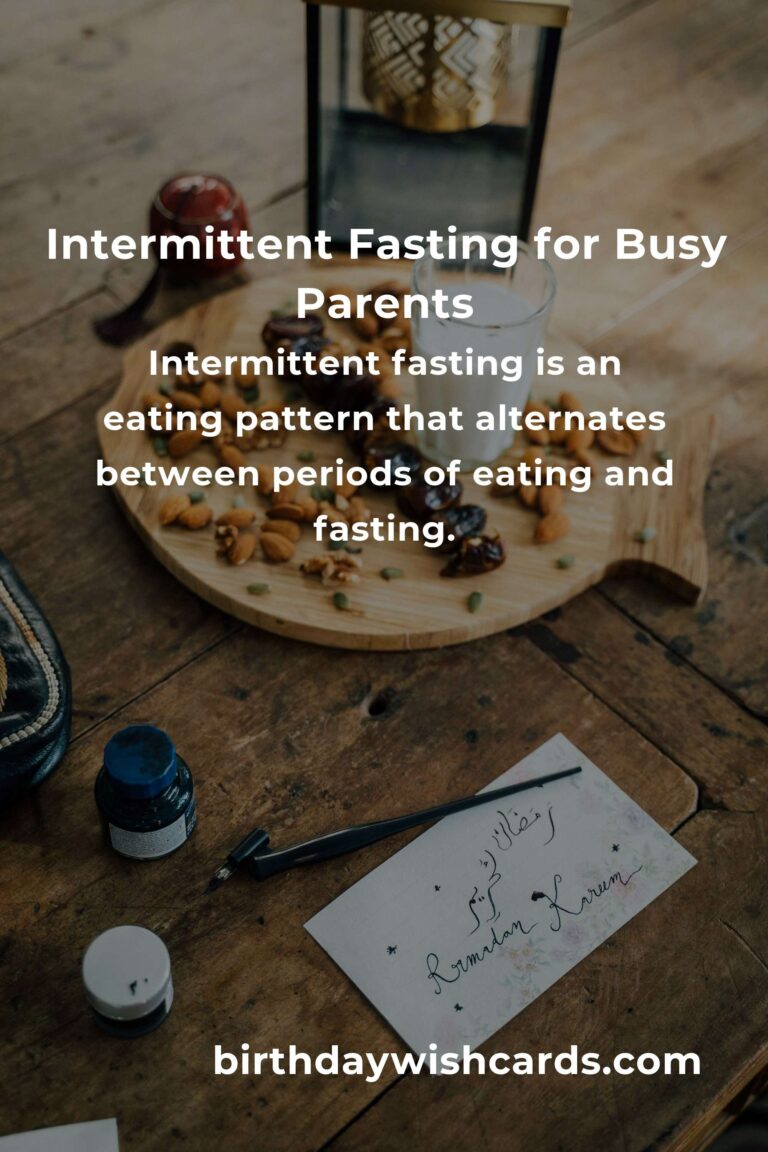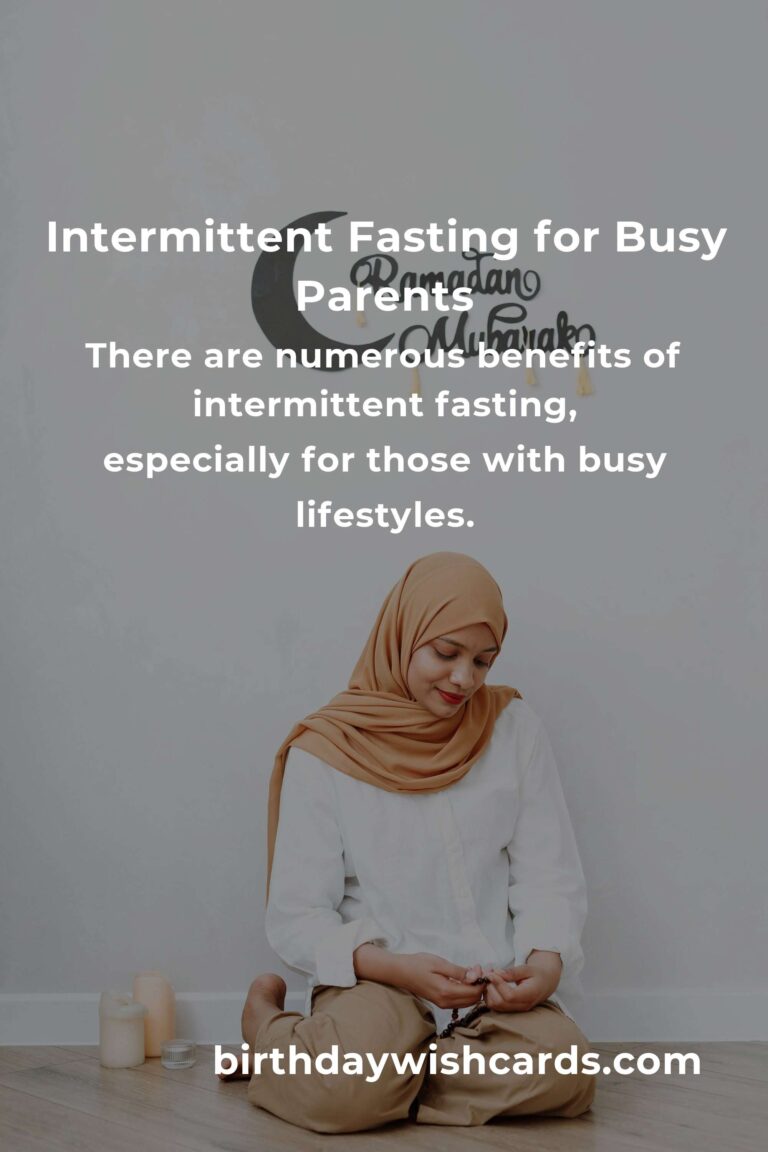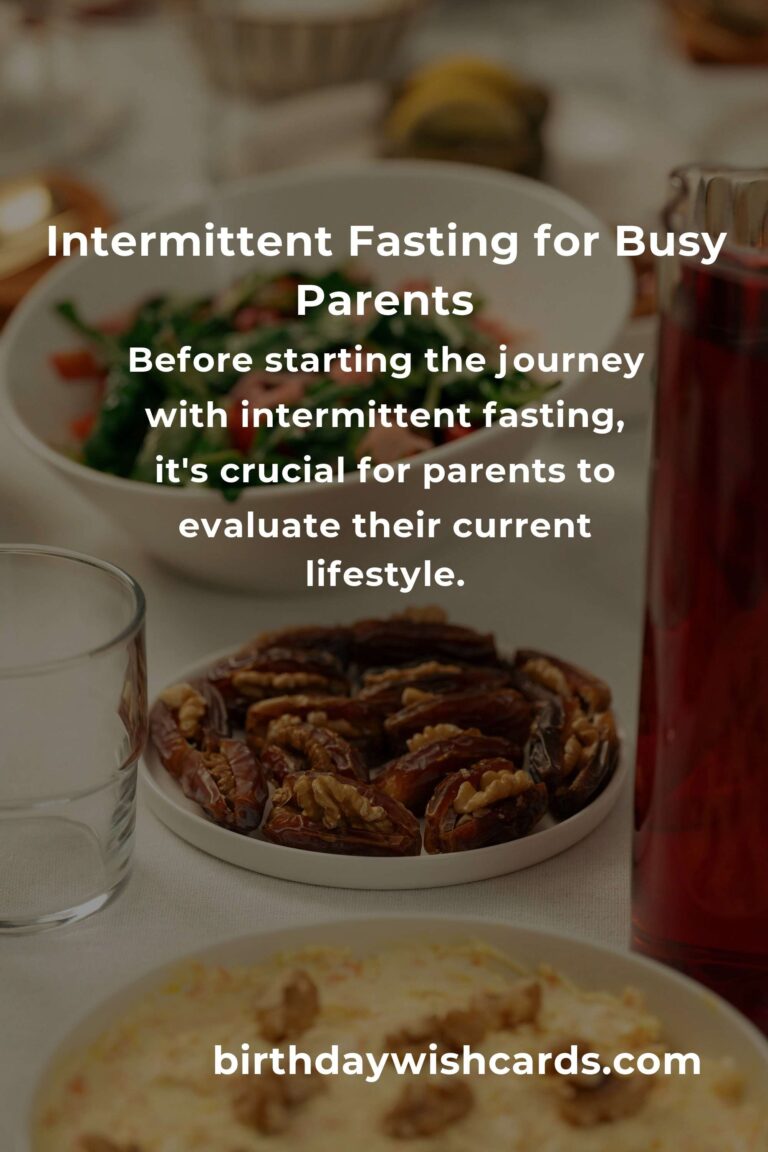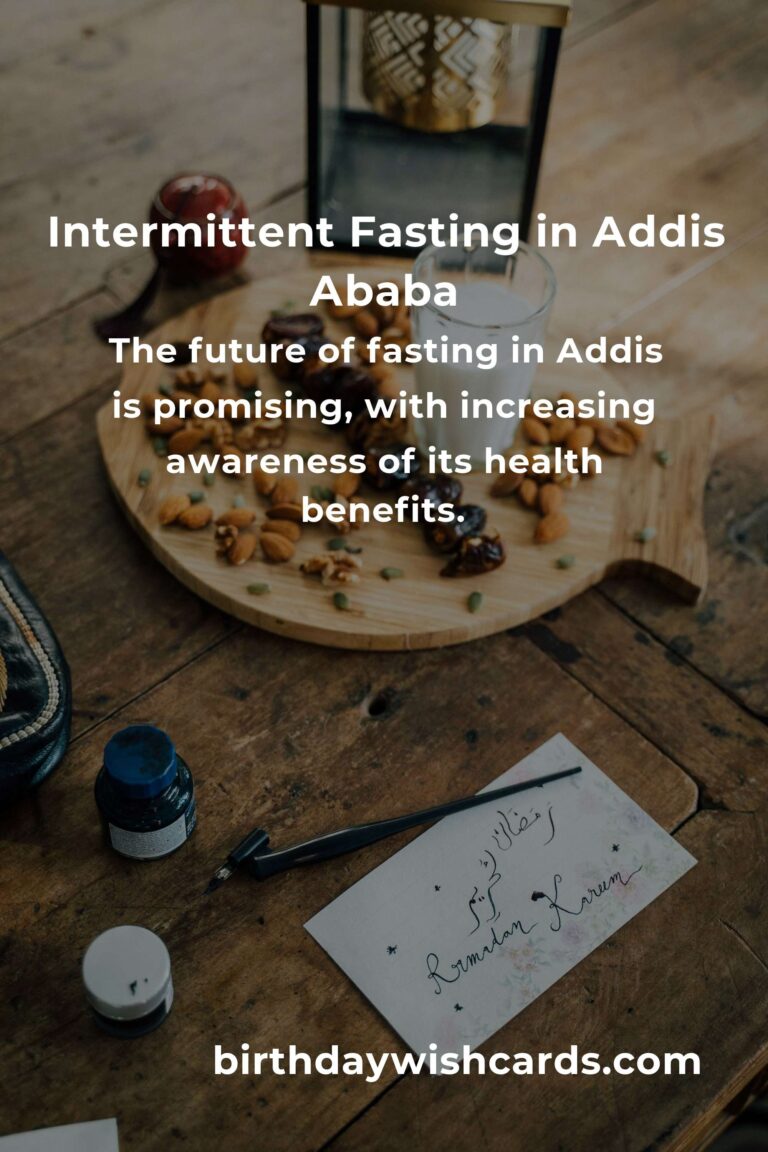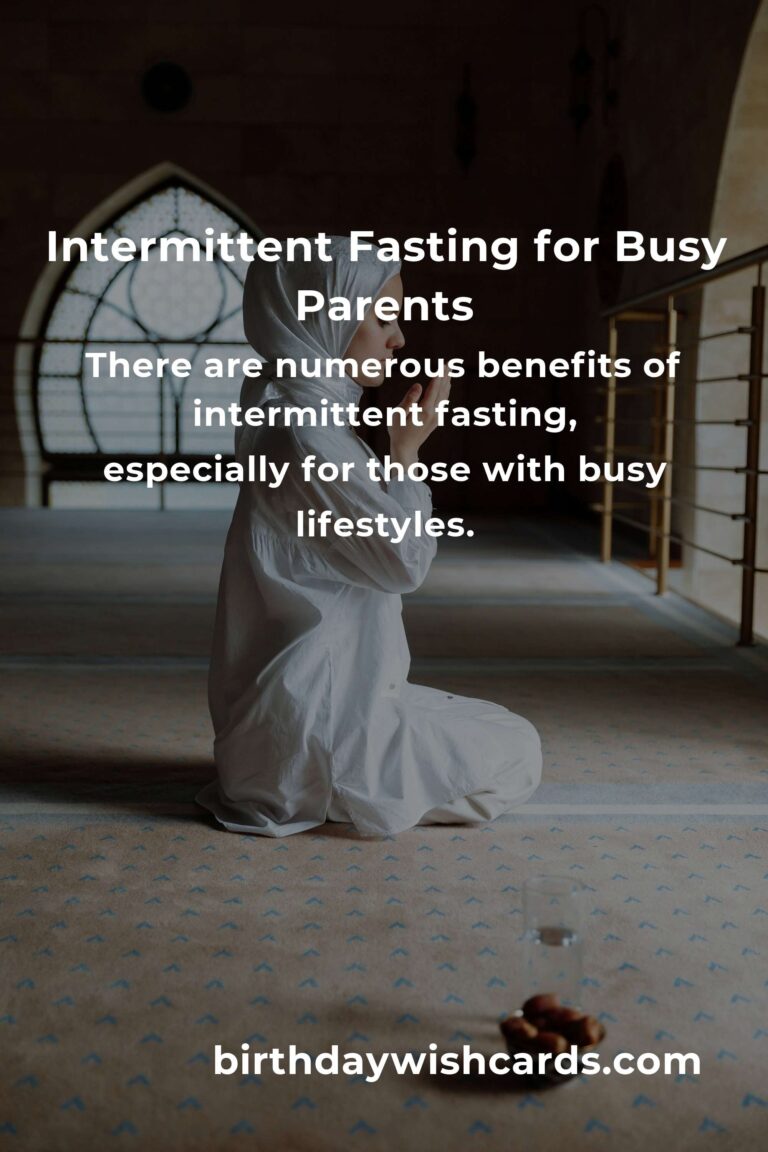
Parenthood brings many challenges, from sleepless nights to managing the household while balancing work. Amidst all these responsibilities, maintaining a healthy lifestyle can seem daunting. Intermittent fasting (IF) offers a flexible and manageable way for parents to improve their health without the need for rigid dieting schedules.
Understanding Intermittent Fasting
Intermittent fasting is an eating pattern that alternates between periods of eating and fasting. Unlike traditional diets, IF does not prescribe specific foods to eat or avoid. Instead, it focuses on when you eat. This flexibility makes it an attractive option for busy parents.
Benefits of Intermittent Fasting for Parents
There are numerous benefits of intermittent fasting, especially for those with busy lifestyles. By incorporating IF, parents can potentially experience improved energy levels, better focus, and weight management. Additionally, the practice may support better metabolic health and longevity.
Popular Intermittent Fasting Schedules
Several IF schedules can work well for parents:
- 16/8 Method: This involves fasting for 16 hours and eating during an 8-hour window, such as from noon to 8 p.m.
- 5:2 Diet: Here, you eat normally for five days a week and limit calorie intake to 500-600 on two non-consecutive days.
- Eat-Stop-Eat: This method involves fasting for 24 hours once or twice a week.
Starting Intermittent Fasting as a Parent
Before starting the journey with intermittent fasting, it’s crucial for parents to evaluate their current lifestyle and consult with a healthcare provider, especially if there are underlying health conditions. Gradually easing into the fasting schedule can help the body adjust without significant discomfort.
Incorporating Family Meals
One of the challenges parents face is incorporating IF into family meal times. Planning meals that fit into your eating window while enjoying family dinners can make the transition smoother. Batch cooking and meal prep can also be helpful in managing time efficiently.
Potential Challenges and Solutions
Some parents may find it difficult to manage hunger during fasting periods. Drinking plenty of water, herbal teas, and coffee (without added sugar or cream) can help curb hunger. Mindful eating during the eating windows can also ensure that nutritional needs are met.
Intermittent Fasting and Exercise
While intermittent fasting can complement an exercise routine, parents should listen to their bodies. Light to moderate exercise like walking, yoga, or cycling can be beneficial during fasting periods, but high-intensity workouts may require additional nourishment.
Maintaining Consistency
Consistency is key to reaping the benefits of intermittent fasting. Parents should focus on finding a routine that fits seamlessly into their lifestyle. Flexibility is essential; adjustments can be made based on family commitments and personal needs.
Conclusion
Intermittent fasting offers a viable solution for parents looking to improve their health without adding stress to their daily routine. With its flexible approach, it can be tailored to fit various lifestyles, making it an attractive option for those balancing multiple responsibilities.
Intermittent fasting is an eating pattern that alternates between periods of eating and fasting.
There are numerous benefits of intermittent fasting, especially for those with busy lifestyles.
Several IF schedules can work well for parents, such as the 16/8 method and the 5:2 diet.
Before starting the journey with intermittent fasting, it’s crucial for parents to evaluate their current lifestyle.
Intermittent fasting offers a viable solution for parents looking to improve their health without adding stress to their daily routine.
#IntermittentFasting #Parenting #HealthyLifestyle #Wellness

